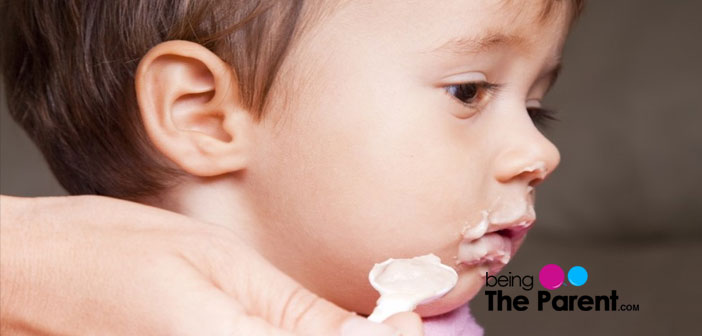
During the fussy eating periods of your toddler, you always hoped that once the child grows up, starts going to school and sees other kids eating well, she would start eating healthy as well. However, there are three kinds of eating disorders that affect school going kids and teenagers:
- Anorexia, in which a child is irrationally worried about being fat and consequently refuses to eat
- Bulimia, in which a child is irrationally worried about being fat and as a result, overeats or binge eats, and then purges the body through laxatives or induced-vomiting
- Binge eating, in which a child over eats (but does not purge)
Since all these habits can result in multiple health problems, some of them fatal, as parents we need to identify these disorders in kids and help them overcome it. We take a closer look at Anorexia in this write up.
What is Anorexia?
Also known as ‘Anorexia nervosa’, this eating disorder renders one typically very very afraid to gain weight or starts to think that he or she is fat. Extreme dieting, use of laxatives, over-exercising and refusing to eat are some common signs of anorexia. Also, anyone who suffers from anorexia would appear to be socially withdrawn, sad, angry or depressed.
What Causes Anorexia In School Going Kids?
Before we start, we would like to stress here are eating disorders are pretty common and anyone can suffer from them – kids, teens, adults alike. While the exact cause of Anorexia is not known, there are various factors that can result in it:
- Some factors are social in nature. What is socially accepted as a “good body type” influences a child a lot. The society today definitely favor “thin” and even underweight body appearances over to plump or overweight appearances
- Some factors are psychological in nature. Children with Anorexia are also known to possess low self-esteem, anxiety, depression and an insecurity over body weight
- Some factors are genetic in nature. If your family has a history of weight-related problems, then your child might also tend to be over-weight, which might be forcing them to be anorexic
What Are The Symptoms Of Anorexia In School Going Kids?
There is a lot of difference between simple dieting and Anorexia. However, the dieting is most often the first symptom of Anorexia. Slowly, this dieting will turn into extreme measures to lose weight.
The most common behavioral symptoms of Anorexia are:
- Insecurity and anxiety over body weight
- Extreme dieting
- Irrational fear of being fat
- Avoiding meals
- Obsessive exercising

The most common health or medical related symptoms include:
- Reduction in body weight
- Constipation
- Increased tiredness
- Signs of dehydration like cracked lips and dry skin
- Tummy ache
- Shivering even in mild cold
Psychological Impacts Of Being Body Conscious
There are few psychological symptoms as well, which might not point to Anorexia stand-alone, but if noticed along with any of the above behavioral and medical symptoms, can mean Anorexia:
- Depression
- Socially withdrawn
- Lack of concentration
- Extreme anxiety about body
What Are The Consequences Of Anorexia In School Going Kids?
Unfortunately, loss of body weight is only the beginning of the troubles caused by Anorexia. It can lead to many health problems, and can also be fatal (one in every 10 anorexic kids are known to lose their life to the disorder).
Some of the health-related problems caused by Anorexia are:
- Heart-related problems, such as low blood pressure and Arrhythmias (problems related to heart rate)
- Anemia
- Kidney related problems caused due to dehydration
- Thinning of bones and consequent increased probability of fracture
- Hormonal problems hampering growth
As a result of these problems, some children are known to succumb to Anorexia due to heart attack or extreme dehydration. The psychological impact of the disorder also increases the suicidal chances in patients.
How Can Anorexia In School Going Kids Be Treated?
The first and foremost step is to communicate well with your child. Asking “do you have an eating disorder” will definitely not help. Rather, start talking in general, and see if you can get your child to talk about her body perceptions, opinion or problems related to eating or food. The child may or may not be forthcoming in admitting there is a problem. The idea is to show support, and assure her that you will stand by her in her journey back to healthy eating.
Once diagnosed, the entire treatment for Anorexia is focused on getting the child to eat healthy again, and get her to regain lost nutrients and weight. Hospitalization also might be required in some cases, especially to treat severe deficiencies. Since psychological factors also contribute to Anorexia, your child might require counselling sessions, anti-depression medication and psychotherapy.
As parents, we know that food is the primary need of humans, and young children need adequate food to grow and develop. Not eating right can be detrimental to a child’s development and hence identifying the problem and then talking about it is imperative. Take your child into confidence and help your child eat healthy and nutritious food plus make him or her feel confident and good.

